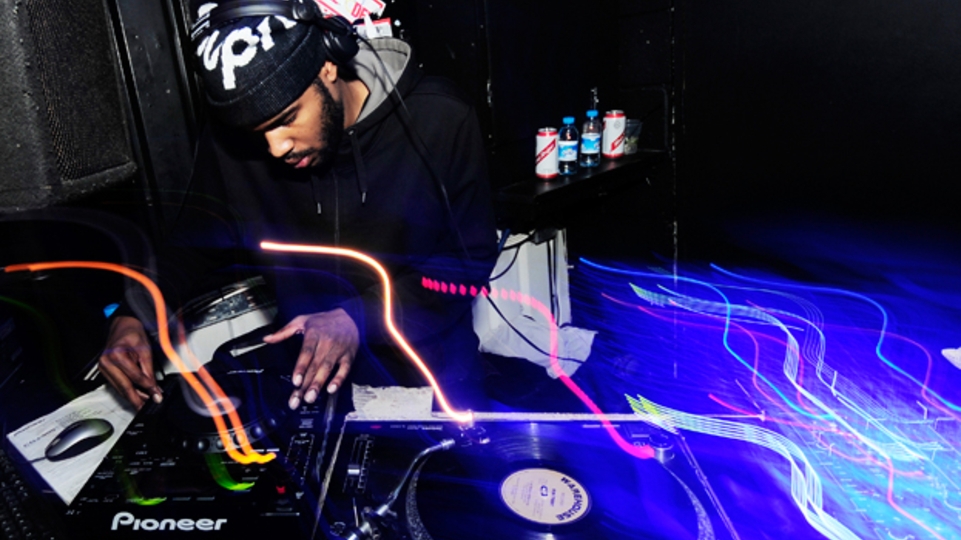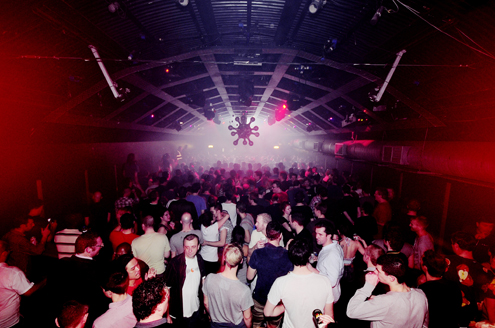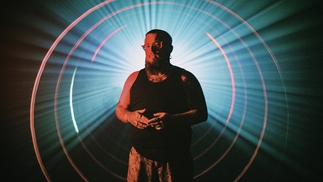NO CONSPIRACY THEORY
London's longest-serving Techno night, Lost.

As one half of Basic Channel, Mark Ernestus has one of the most influential back catalogues in electronic music. And just as Basic Channel releases were as eagerly anticipated as Santa dropping down the chimney with a sack of white labels for the techno cognoscenti during the 1990s, so Ernestus’ rare DJ appearances are almost as mythical an event. Or to put it another way, if you were to book him, you probably wouldn’t stick him in a back bar at the end of the night.
Yet the fact that this is where DJ Mag finds him spinning dub to 20 people isn’t due to Lost’s dodgy programming. For that’s something you could never accuse London’s longest-running techno night of, and through the bar are two rooms hosting line-ups that would make anyone who’s followed Lost — and indeed the whole genre of techno — over the last 25 years think all their Christmases had come at once. Indeed, with Juan Atkins and Derrick May headlining the main room and Kyle Hall and Tevo Howard handling the house in room two, there’s simply no space for Ernestus anywhere else, hence squeezing him in as a stocking-filler here.

But perhaps what’s even more surprising is the tune that sends us here seeking a breather. Arrow’s ‘Feeling Hot Hot Hot' is a record usually more associated with lowest common denominator office parties than high-minded techno temples like Lost. Sure, the fact that Kyle Hall is greeted by a few folded arms from the sniffier corners of the crowd when he drops it shows that Lost’s purist reputation isn’t entirely unwarranted, but it’s the one time his grip on the dancefloor slightly slips during a set which includes both box-fresh Chicago house and dusty classics like Joe Smooth’s ‘Promised Land’ and Robert Owens’ ‘I’ll Be Your Friend’, and that he feels free to play it at all shows Lost is more eclectic than many believe.
Ever since the night was the first to bring Jeff Mills, DJ Rolando and Richie Hawtin to the UK in the 1990s, Lost has been synonymous with galvanised techno, but founder and resident Steve Bicknell has also introduced broken beat, disco and dub into Lost-affiliated nights like Spacebase. Ensconced in the tiny Plastic People for the last few years, Lost has narrowed its focus down to its core techno sound simply due to the size of its surroundings, but given the three rooms of Area to play with, Bicknell has broadened out the musical canvas accordingly.
Of course, Area is regularly packed with sweaty men every weekend, and although they’re normally of a different persuasion, the male/female ratio is probably similar.

It’s also true that the average age here suggests most are Lost regulars who’ve ‘seen it all before’ throughout the last two decades, but their enthusiasm also suggests that what they’ve seen before is exactly what they want. Explaining why, following Bicknell’s solid warm-up set, Juan Atkins gets a more muted response than you might expect for someone who pretty much invented the entire genre many here have dedicated their lives to. And the reason is Atkins’ shift in style over the past few years — whereas he always was pretty ropey technically with vinyl, his sets always contained killer tunes with a real ‘What the fuck was that?’ factor. Now he’s moved to digital, his mixing is much smoother, but the tech house he’s spinning is as dull as watching paint dry, and, staring out over the crowd, Atkins resembles a man doing exactly that.
It takes barely five minutes for Derrick May to kick things into gear, though. He might have started out as Atkins’ protégé, but May could now teach his mentor a few lessons; swerving through deep jazzy techno to thumping tribal rhythms with old favourites like Âme’s ‘Rej’ and First Choice’s disco classic ‘Let No Man Put Asunder’ thrown in and even James Brown cut-ups to keep you guessing. It’s a tough choice between him and Kyle Hall in the house room, but as the dancefloor swells to breaking point, it seems that most have decided that it’s with the old veteran rather than any young pretender that’s still where it’s at. Something which, two decades down the line, you could say about Lost itself.





